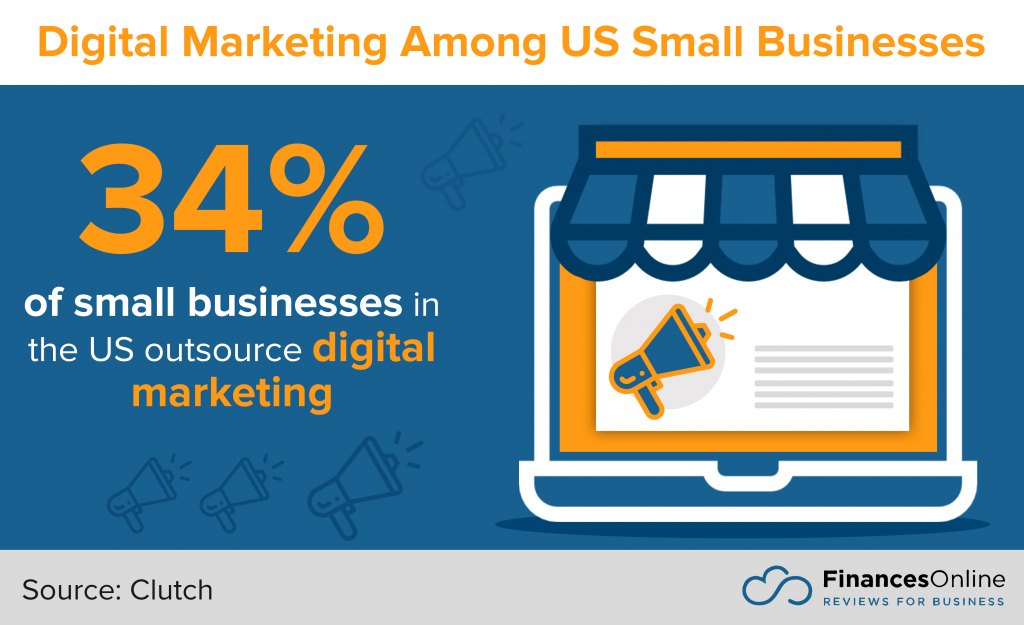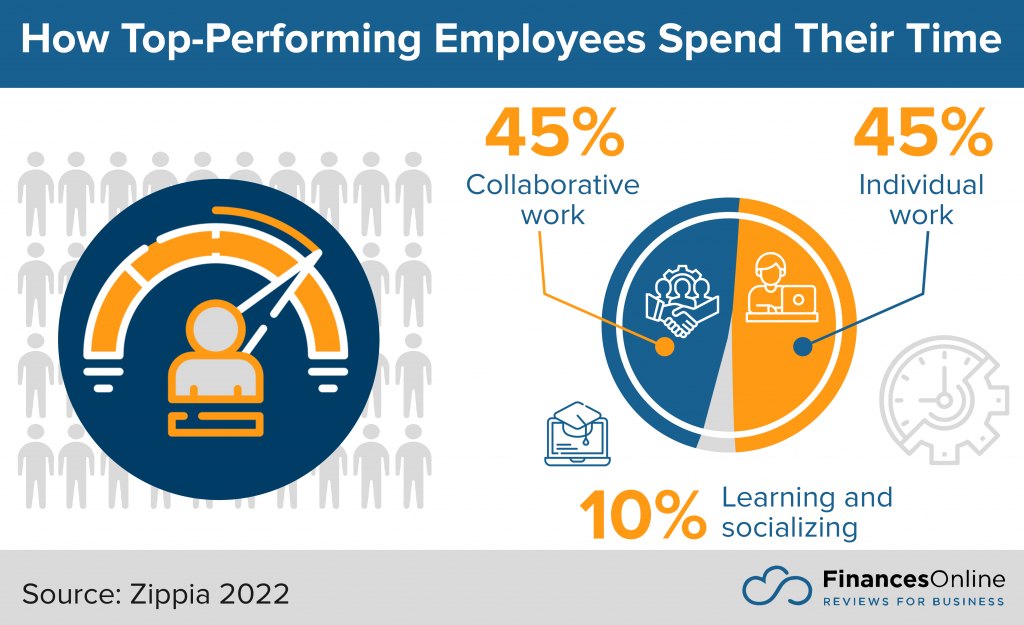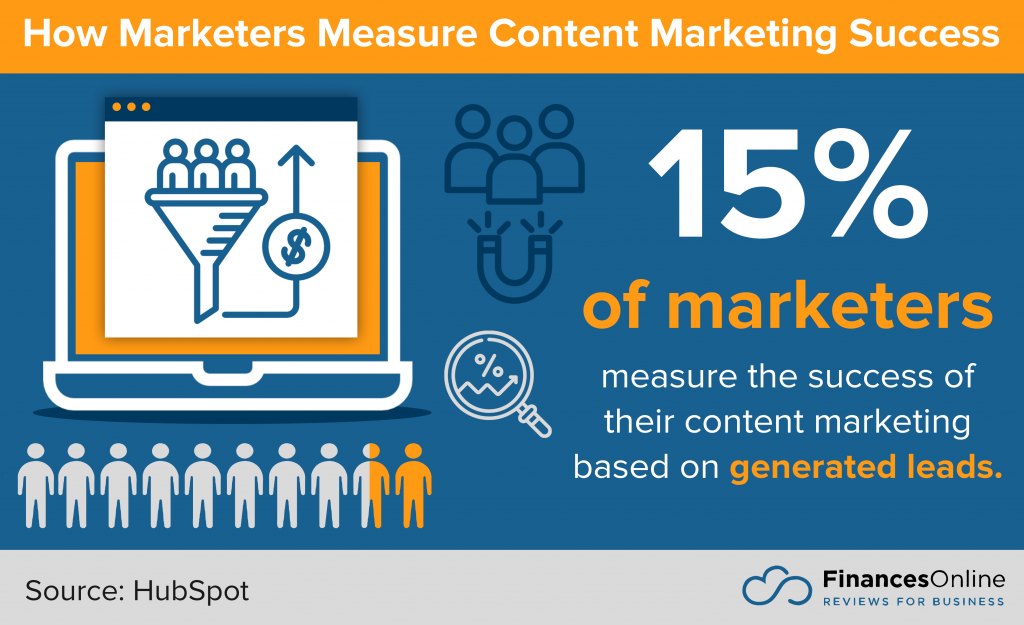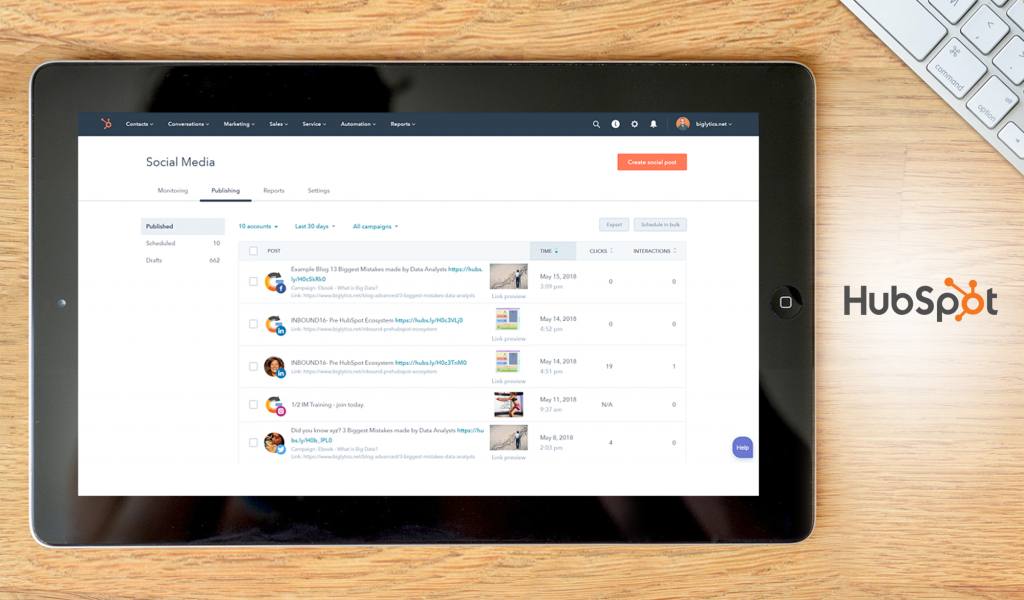Launching a marketing campaign has turned into a much more complicated project with traditional and digital media converging. Within the digital marketing realm alone, you have several channels to cover. This means more areas to optimize your campaigns for, more channels to keep track of your campaigns’ performance, and more opportunities for errors and risks to ruin your campaigns’ success.
Fortunately, these challenges and risks can be mitigated by solid planning and execution, as well as tracking and analysis of your campaign’s performance and utilizing campaign management software solutions. And to pull these off together, a well-structured campaign management system should be in place. But how does a well-managed campaign work to a business’ advantage? In this article, we will walk you through some of the crucial benefits of campaign management.

Top Benefits of Campaign Management Table of Contents
In the digital age, marketing trends continue to change rapidly. These changes keep marketers on their toes, putting together the best strategies to meet consumers where they are and convert them into loyal customers. With the average share of digital customer interactions across the globe increasing by 22% during the pandemic, marketers had to realign their digital marketing efforts and further reinforce data analytics.
Source: Statista 2022; McKinsey & Company
While data-driven marketing is arguably an effective way to achieve marketing success, it is not always the case. According to a report by global marketing and sales firm, ZS, although 70% of business executives ranked marketing analytics as important, only 2% have seen positive returns on their data-driven marketing investments.
One of the reasons behind the failure of launching data-driven marketing campaigns is poor management. Despite having a great pool of talents, resources, and even sophisticated technologies in place, marketing goals are left unaccomplished because of misaligned plans, poor communication, and other factors that leave everything all over the place. But why does having a good campaign management critical to the success of your marketing plans? First, let us take a look at some of the benefits of campaign management to better understand its importance.
How does campaign management impact customer relationship building?
Campaign management is not only about promoting products but also plays a critical role in building and nurturing customer relationships. Effective campaign management goes beyond one-time interactions, focusing on creating meaningful connections with customers that contribute to long-term loyalty. Here are some ways campaign management impacts customer relationships:
- Personalized Customer Interactions: Campaign management allows marketers to create highly targeted campaigns based on customer data and preferences. By segmenting audiences and tailoring content to specific customer needs, companies can engage their audience more effectively, making customers feel valued and understood.
- Consistent Brand Experience: Through structured campaign management, businesses can ensure that all customer touchpoints—whether emails, social media, or direct interactions—deliver a consistent brand message. This consistency helps in building brand trust and recognition, as customers know what to expect from each interaction.
- Real-Time Engagement: Modern campaign management tools provide real-time data and feedback, allowing companies to respond to customer needs and feedback immediately. This responsiveness demonstrates attentiveness to customer concerns, building stronger, more positive relationships.
- Building Loyalty Through Value-Driven Content: Campaign managers can identify and prioritize content that provides real value to customers, such as educational materials, exclusive deals, or insights. By consistently offering valuable content, brands can position themselves as trusted advisors rather than just sellers, fostering deeper customer loyalty.
- Proactive Problem-Solving: Campaign monitoring allows marketers to identify and address any negative feedback or issues early on. By taking proactive steps to resolve problems, brands can turn potentially negative experiences into positive ones, showing customers they are committed to their satisfaction.
- Gathering Customer Insights for Future Campaigns: A well-managed campaign collects data and insights that can be used to understand customer preferences and behaviors. This information is invaluable for refining future campaigns, allowing for even more personalized and effective customer engagement.
Top Benefits and Advantages of Campaign Management
1. Clear Campaign Goals and Objectives
Regardless of the size of a business, its marketing campaigns should have a set of goals. These goals define what a campaign is intended for—to raise brand awareness, promote a newly launched product or service, etc. Having proper a campaign management in place also ensures that campaign goals and objectives are not only specific but also reasonably realistic. This involves taking into consideration the available resources, the timeline of the campaign, and the budget needed.
Furthermore, it is also necessary to ensure that the objectives of a campaign align with the goals of the business or organization. Moreover, a well-managed campaign also means goals and objectives are properly communicated with the rest of the team and other parties involved in the project.
How often do goal-setting marketers achieve their goals?
Source: CoSchedule
Designed by2. Team Members’ Roles Are Clearly Defined
Marketing campaigns are accomplished through collaborative efforts, which means everyone has his or her role to carry out. A campaign manager takes on the lead role, which includes setting the structure of the whole team. This includes identifying the roles that need to be filled and choosing talents with the best skills to fill these roles.
Depending on the size of the business, the campaign, and the budget, a marketing campaign team may include campaign managers or directors, content creators, SEO experts, digital marketing specialists, and data analysts, among others. It is also determined whether the talents hired will be working full time or part-time, or if there are roles that can be outsourced.

3. Coordinated Planning of Marketing Campaigns
An unplanned or poorly planned marketing campaign is a campaign set for failure right from the start. A well-planned campaign, on the other hand, not only has clear goals and objectives but also has its priorities laid out. According to a recent report, marketers who plan ahead are 331% more successful compared to their peers who do not.
Building plans is an integral part of campaign management. This is the stage where the framework of the entire campaign is pieced together and where all important elements of the campaign are analyzed and finalized. These include identifying the target audience, the types of content that need to be created, and the best channels to deliver them and reach the target customers.
It is also during this stage that the marketing tools necessary to create and launch engaging and profitable campaigns are determined. For established businesses, likely, there are already marketing applications in place. Some of these apps include the best content marketing software and the leading marketing automation platforms in the market. And to make managing the whole campaign more efficient, a dedicated campaign management system that seamlessly integrates with other existing applications must also be considered.
How often do marketers proactively plan marketing campaigns ahead of time?
Usually: 46
Usually
Sometimes: 28
Sometimes
Always: 17
Always
Rarely: 7
Rarely
Never: 3
Never
Source: CoSchedule 2022
Designed by4. Systematic Execution of Marketing Strategies
Marketing strategies, regardless of how timely and data-driven they are, will not be effective if not properly executed. If you are a campaign manager, it is at this point where you have to mobilize your entire team to put the marketing plans you have brainstormed into action. This, however, is easier said than done as it involves staying on top of both administrative and marketing campaign-related activities. This is where digital tools come in handy as it allows campaign managers to automate workflows and streamline tasks, so they can focus more on overseeing the progress and success of the marketing campaigns.
5. Organized Collaboration Among Team Members
Seamless collaboration across the whole marketing team is one of the keys to the successful execution of marketing campaigns. To achieve this, a platform where everyone can work together and communicate clearly with one another is necessary. This, however, can be tricky, especially for teams that operate remotely.
To address the challenges faced by teams when it comes to working together whether in the same space or remote offices, it has become a common practice to utilize the right digital collaboration tools. These tools make it easier for campaign managers and the members of their teams to see assigned and reassigned tasks. These platforms also help teams avoid conflict and misunderstanding, as well as in keeping everyone updated on the latest developments, issues, and changes in the project.

6. Ensures That the Schedule Set Is Being Followed
Marketing campaigns follow a strict set of deadlines from the planning stage right up to the point where the campaigns are already active. Part of a campaign manager’s role is to make sure that the timeline is not only religiously followed but also flexible to sudden adjustments. Creating a schedule, however, is complicated, especially when it involves setting a timeline for simultaneous tasks and activities.
Whether the task involves creating blog content or making a simple social media post, getting the right timing plays a crucial role in ensuring the smooth execution of your marketing plans and strategies. This is why some marketers and businesses invest in various tools, such as social media management solutions and project management platforms to make task scheduling easier, as well as monitoring the progress and completion of each activity.
7. Monitors the Performance of Marketing Campaigns
Managing a campaign does not stop once a marketing campaign is launched. Keeping track of your campaigns’ performance is a necessary part of effective campaign management to assess if you are meeting the goals you have set. There are various ways to monitor and measure the performance of your campaigns. Some of these include measuring website traffic, level of engagement, as well as conversion and bounce rates, among others.
Whether the goal of your campaign is to increase website traffic, grow social media followers or email subscribers, increase brand awareness, etc., monitoring its performance allows you to understand if a campaign is working in favor of your business or brand. Campaign monitoring also enables you to identify which part of your campaign is not hitting the metrics and what you can do to resolve it.

8. Keeps Spending Within the Budget
Marketing is a big investment and not all companies can afford to go all out on their marketing campaigns. This has become quite a dilemma among small and start-up businesses as they tend to either cut their marketing budget short or spend their money on marketing strategies that do not work for their business model and size. For larger companies, overspending is one of the budgeting issues commonly dealt with.
One of the benefits of having an effective campaign manager—or a well-organized campaign management structure—is the proper utilization of the marketing budget. With the help of expense management tools that usually come with campaign management solutions, campaign managers can keep track of marketing expenses and make informed decisions on how to utilize the remaining budget.
Percentage of B2B and B2C Firm Revenues Allotted to Marketing Budget
B2B Product: 9.4
B2B Product
%B2B Services: 11.4
B2B Services
%B2C Product: 15.9
B2C Product
%B2C Services: 12.2
B2C Services
%Source: The CMO Survey, 2021
Designed by9. Campaigns Are Optimized Based on Results
Optimizing campaigns is a continuous process a lot of companies find challenging. This is because it can be very tedious and time-consuming, but also rewarding once you get to refine your campaigns and improve their performance. A well-managed campaign enables you to identify the areas that need more improvement based on measurables results.
For example, one of your landing pages is not generating the expected number of sign-ups. This can be an issue with the design, content, or other elements. This can be addressed by utilizing tools such as heat maps to get an idea of which part of the landing page gets more attention and which does not. Campaign managers can also choose an A/B testing method to see which version of a landing page drives a better conversion rate. There are several ways to optimize active marketing campaigns. A good campaign manager understands that this is a continuous process to ensure that your campaigns consistently deliver positive results.
10. Maintains Accountability to Drive Peak Performance
A well-managed team is one that not only knows their responsibilities but also their accountabilities. Accountability within a marketing team measures a team member’s commitment to fulfilling their responsibilities and delivering the desired results. Campaign managers communicate the value of accountability to their team members and make them understand that their level of performance can have a significant impact on the outcome of the marketing campaigns they are working on.
Organizations that have proper campaign management in place recognize that accountability in marketing is a continuous initiative. It goes not only for managing the performance of team members but also for making continuous improvements to plans and strategies in place, which helps optimize output and maximize investment.
Source: Betterworks, 2020
What are examples of campaign management software?
The current market is teeming with software solutions that cater to the needs of marketers and campaign managers. To help you narrow down your options, here are some of the leading platforms you may be interested in:
HubSpot-Marketing
HubSpot Marketing is an advanced online marketing solution that is popular for its ease of use. It also comes with all the essential advanced features such as SEO tools, mobile and social media marketing, marketing automation, and a dedicated CRM.
monday
Another popular choice is monday.com, a free digital platform known for its powerful collaboration tools. This software solution is ideal for remote marketing teams as it comes with all the essential features that enable them to work seamlessly on a single project. These features include document storage and sharing, calendar view, timeline and Gantt views, time tracking, and advanced reporting and analytics tools.
wrike
Wrike is another collaboration software that comes with a dedicated marketing campaign management platform. The platform supports multi-channel campaigns as well as customer interactions via social media, live chats, pay-per-click, and search engine marketing.
mayple
As a marketing platform, Mayple sets itself apart from the others on the list. Instead of offering marketing and campaign management tools, Mayple provides expert services. Mayple connects marketers and business owners to marketing experts to help them assess their companies’ marketing needs and come up with marketing plans and strategies that can work best for their business.
marketing-creatio
Last but not the least is Marketing Creatio. This CRM solution offers robust tools that automate lead management and marketing campaign workflows. Marketers and business owners who have no coding experience can utilize Marketing Creatio’s no-code and AI/ML automation features to design their own marketing process.

A quick look at your campaign key metrics in HubSpot Marketing dashboard.
Campaign Management Requires Both Skills and Actual Tools
Suffice it to say that the success of marketing campaigns is anchored on the proper management of a marketing team. But while an effective and experienced campaign manager plays a crucial role in utilizing the skills and knowledge of his team members, they become more efficient when they have the right tools to help them manage the entire team. In the digital age, the benefits of campaign management are predicated on having these tools.
The good news is there are a number of marketing tools that have been proven to be trustworthy and worth the money. The downside to this, however, is the tendency to be overwhelmed by the sheer number of options. If you are a campaign manager or a business owner who plans to launch a campaign, you may want to learn more about what software you should use.
Key Insights
- Complexity of Modern Campaigns: Launching a marketing campaign today is more complicated due to the convergence of traditional and digital media, requiring comprehensive planning, execution, and monitoring.
- Importance of Campaign Management Software: Utilizing campaign management software solutions can significantly mitigate the challenges and risks associated with modern marketing campaigns, ensuring better planning, execution, and performance tracking.
- Clear Goals and Defined Roles: Successful campaign management ensures clear campaign goals, well-defined team roles, and proper communication of objectives, which align with the overall business goals.
- Planning and Coordination: Proper campaign planning and coordination are crucial, with pre-planning significantly increasing the chances of success. Tools that integrate with existing marketing applications enhance efficiency.
- Systematic Execution and Collaboration: Effective campaign management involves systematic execution and organized collaboration among team members, often facilitated by digital tools to streamline tasks and improve communication.
- Performance Monitoring and Budget Management: Continuous monitoring of campaign performance and strict adherence to the budget are essential to assess the effectiveness and ensure financial efficiency.
- Optimization and Accountability: Ongoing optimization based on measurable results and maintaining accountability within the team drive continuous improvement and peak performance in marketing campaigns.
FAQ
- What is campaign management, and why is it important for marketing success?Campaign management involves planning, executing, tracking, and analyzing marketing campaigns to achieve specific goals. It is crucial for marketing success because it ensures that campaigns are well-organized, efficiently executed, and aligned with business objectives, minimizing risks and optimizing performance.
- How does campaign management software help in running marketing campaigns?Campaign management software helps by providing tools for planning, scheduling, executing, and monitoring campaigns. These tools enable automation of repetitive tasks, facilitate collaboration among team members, track performance metrics, and ensure that campaigns stay within budget and on schedule.
- What are the key benefits of having clear campaign goals and objectives?Clear campaign goals and objectives provide a focused direction for the campaign, ensuring that all efforts are aligned with the desired outcomes. They help in setting realistic expectations, allocating resources effectively, and measuring success accurately.
- Why is defining team members’ roles important in campaign management?Defining team members’ roles is important to ensure that everyone knows their responsibilities and can work collaboratively towards common goals. It helps in avoiding confusion, improving efficiency, and ensuring that all aspects of the campaign are covered by skilled professionals.
- How does proper planning contribute to the success of marketing campaigns?Proper planning contributes to success by establishing a clear framework for the campaign, identifying target audiences, creating relevant content, selecting appropriate channels, and integrating necessary marketing tools. It helps in anticipating challenges, setting priorities, and ensuring a systematic approach to execution.
- What role does collaboration play in effective campaign management?Collaboration is crucial for effective campaign management as it ensures that all team members can communicate, share ideas, and work together seamlessly. Digital collaboration tools facilitate real-time updates, task assignments, and progress tracking, which are essential for coordinated efforts and timely execution.
- How can campaign managers ensure that schedules are strictly followed?Campaign managers can ensure schedules are followed by setting clear deadlines, using scheduling and project management tools, regularly monitoring progress, and being flexible to adjust timelines when necessary. These practices help in maintaining the flow of activities and meeting key milestones.
- Why is monitoring the performance of marketing campaigns important?Monitoring performance is important to assess whether the campaign is achieving its goals, identify areas that need improvement, and make data-driven decisions for optimization. It helps in understanding the effectiveness of strategies, measuring ROI, and ensuring continuous improvement.
- How does campaign management help in keeping spending within the budget?Campaign management helps in budget control by tracking expenses, allocating resources efficiently, and using expense management tools to monitor and manage costs. It ensures that spending aligns with the budget plan and helps in making informed decisions to avoid overspending.
- What are some examples of popular campaign management software?
Popular campaign management software examples include HubSpot Marketing, monday.com, Wrike, Mayple, and Marketing Creatio. These platforms offer various features like SEO tools, marketing automation, collaboration tools, performance analytics, and CRM integration to support effective campaign management.

























Leave a comment!